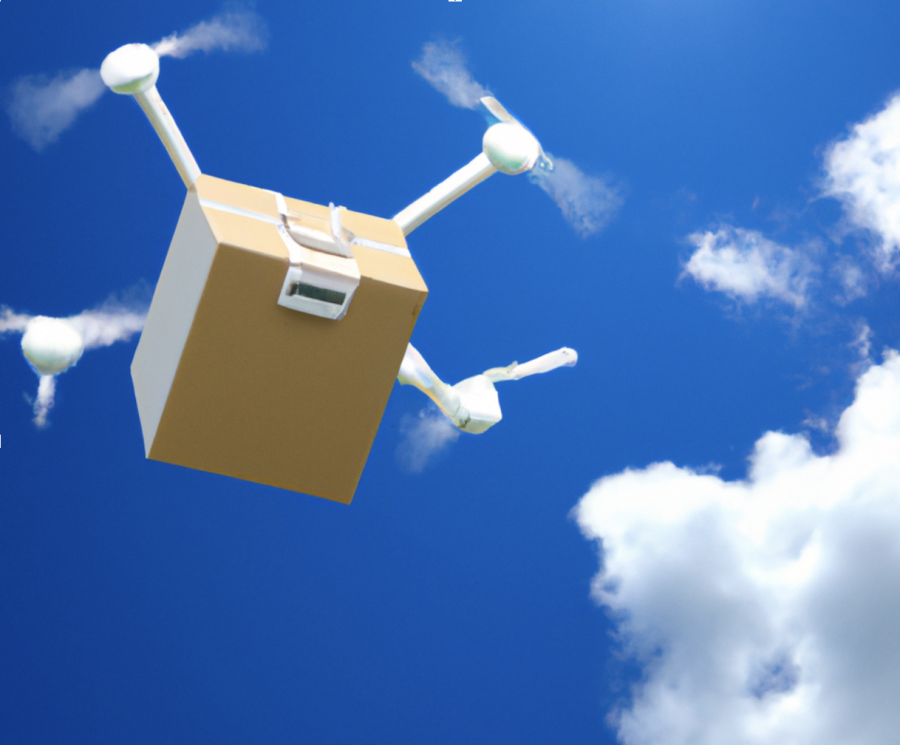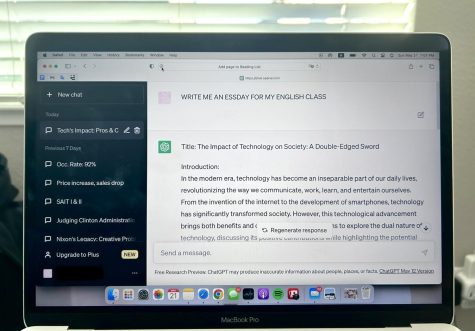Sky high revolution: How drone delivery services are changing the future of logistics and environment
The advancements in technology have truly changed the way we will approach convenience at our doorstep.
The use of drone delivery services is rapidly spreading throughout the skies. And businesses collaborate with drones to deliver everything from packages and mail to food and medicine, right at your doorstep.
“I think it’s a great idea. It’s a lot more environmentally friendly than traditional delivery methods. Drones don’t use any fuel, so they don’t produce any emissions,” said UAV Club officer Raghav Misra (‘23).
Although the use of delivery drones is still in its infancy, it will alter the way we approach communications and logistics. Drones can access areas that are dangerous for humans, and they can deliver goods much faster than trucks, trains, or planes.
“Another plus that I see, is that they don’t require any roads or infrastructure, so they don’t contribute to urban sprawl. I believe it to be a really great idea. I’m eager to observe its future development,” said Misra.
The most well-known businesses in the industry include Matternet, Flytrex, and Zipline. There is a good chance that drone delivery will spread even further as technology advances and drone prices fall. This might significantly alter how we work and live, as well as significantly alter how the environment is affected.
“I think it’s a great idea. It’s a lot faster than traditional delivery methods, especially when it comes to emergencies, and it can also access areas that are difficult or dangerous for humans,” said Amir Salehifar (‘23).
Drone delivery has the potential to reduce traffic congestion and improve air quality. It could also help to reduce the amount of waste that is produced, as it would allow for more efficient delivery of goods.
“It also helps to reduce the traffic congestion and improve air quality, which is beneficial for both the environment and the health of the people,” added Salehifar.
Another challenge is the issue of regulation. There are currently no clear regulations governing the use of drones for delivery, and this could make it difficult for companies to operate efficiently.
“I’m a little bit worried about the safety of drones.” I’m not sure if they’re safe enough to be flying around delivering packages,” said Aryo Garakani (‘23).
Your donation will support the student journalists in the AVJournalism program. Your contribution will allow us to purchase equipment and cover our annual website hosting costs.











